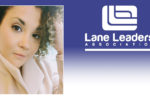New Member Profile: Hearing Associates
We recently got to do a digital interview with one of our newest members, Doctor of Audiology, Sandi L.B. Ybarra (In the center of the above photo), the founder of Hearing Associates. We asked how they got their start and what keeps them engaged with the Eugene/Springfield health community. Check it out!
What is The Heart of Hearing Associates? What Do You Do Best?
Hearing Associates is a private audiology practice located in downtown Eugene since 1992. Our focus is on allowing people with significant hearing loss to hear as well as they possibly can, resulting in improved quality of life. Hearing loss is an invisible handicap. Although it is increasingly prevalent with age, hearing loss is too often ignored. The comorbidity of hearing loss and cognitive disorders makes it so important for individuals’ overall health and wellbeing. Audiologists are the healthcare professional properly trained and educated to diagnose and treat hearing, balance, tinnitus and other auditory disorders.
Yes, hearing aids are part of our treatment plan and keeping these instruments in good working order is a major part of our commitment to our patients. Many of our patients cannot hear without their hearing instruments. We understand that urgency and do everything in our power to be available for patients’ needs including offering “drive-by services” during this time of coronavirus physical distancing. Not being able to hear during this concerning time in our country would significantly add to the stress our patients are already feeling.
What Prompted You To Get Into Audiology?
It may sound trite, but it was after seeing the old, black and white, Hellen Keller movie with Patty Duke that I told my mother, “That is what I am going to do when I grow up.” Of course, I did not know there even was a profession called “audiology” but I have always been fascinated by the human ear and how hearing affects everything we do! Helen Keller said her greatest handicap was her hearing loss because it cut her off from people, whereas her blindness cut her off from things. If you can’t hear, consider how it would affect your family, your work, your social life, your safety, your connection to nature, music, etc., etc. Of course, deaf individuals do have full and rewarding lives, but their need for special accommodations does have an influence on their possibilities.
Why Eugene/Springfield?
After graduating from San Diego State University in 1988, I was employed at the Eugene Hearing & Speech Center. My husband and I had never been to Eugene before and had to look it up on a map. Eugene was significantly closer to our families in Washington state than San Diego and the size of Eugene/Springfield, as compared to San Diego, felt comfortable and like a place we could raise our family. We bought our fist house in Springfield’s historic Washburn district. I loved that old house! We were the house’s third owner in 100 years! It had the original wallpaper on the walls and the bathroom was an add-on built on the back porch. We loved living in downtown Springfield with being so close to our favorite restaurant, the library, the bus stop and so much more.
How Common are Hearing Issues?
One in eight, or 30 -40 million Americans 12 years and older have significant hearing loss. Those ratios increase as people age. For Americans over the age of 65, the ratio increases to 1 in 3, and then again for Americans over the age of 75, to 2 in 3. Yet, it is predicted that less than 1/3rd of those who could use hearing treatment actually obtain it. There are many studies showing strong links between hearing loss and memory/cognitive issues. Even individuals with mild hearing loss are twice as likely to develop dementia then those with normal hearing, and those with moderate hearing loss are three times more likely and those with severe hearing loss have five times the risk. (Lin et al., 2011). Others studies have shown significantly higher rates of depression, anxiety and other psychosocial disorders in individuals with hearing loss who are not wearing hearing aids (Kochin & Rogin, 2000).
In 2017, Congress did pass the law making “over-the-counter” hearing aids legal hoping to provide greater public accessibility and affordability for hearing aids for individuals with mild-to-moderate hearing loss. This allows users to obtain amplification without being seen by a hearing healthcare professional. This is a scary thought when hearing loss is a preindication of other serious health issues. The six major comorbid conditions associated with hearing loss are social isolation and loneliness, depression, balance problems and falls, cardiovascular disease, diabetes and dementia. Additionally, hearing loss is also linked to fibromyalgia, anemia, psoriasis, rheumatoid arthritis, kidney disease and sleep apnea. The U.S. Preventive Services Task Force issued a recommendation on screening for hearing loss in adults age 50 years and older for these reasons. It is vitally important that all individuals be screened for hearing loss and then properly diagnosed for determination of appropriate treatment strategies. There are rumors that Medicare may consider covering part of the expense for hearing aids in the future, but what has been available so far are discounted hearing aids made available through third party providers. I caution all my patients to “read the fine print”. I have not found one of these discount programs that has the patient’s best interest included in its options.

Big thanks to Doctor of Audiology, Sandi L.B. Ybarra for sharing their story with us and letting us get to know Hearing Associates a little better! Check our their website to find out more and to start being proactive about your hearing wellness!
Discover more from Springfield Bottom Line
Subscribe to get the latest posts sent to your email.



